An underwater adventure of scuba diving not only unveils the mesmerizing beauty of the aquatic realm but also comes with a responsibility to preserve and protect the delicate ecosystems beneath the surface. Engaging in ethical diving practices and adhering to diving etiquette is paramount for fostering a sustainable and respectful connection with the underwater world. Ethical diving involves a commitment to minimizing environmental impact, ensuring the well-being of marine life, and following established guidelines to safeguard underwater habitats. By embracing the principles of ethical diving and diving etiquette, divers not only contribute to the conservation of underwater ecosystems but also elevate their own diving experiences, becoming ambassadors for responsible and sustainable exploration beneath the waves.
A Guide to Ethical Diving Practices
To be considered an ethical diver, it’s important to prioritize safety, environmental responsibility, and respect for marine life. Here’s a list of things you can do to be an ethical diver:
- Education and Training: Obtain proper diving certifications from recognized agencies. Keep your skills up-to-date through regular training and refresher courses.
- Respect Marine Life: Avoid touching or disturbing marine organisms. Keep a safe distance. Do not collect marine life as souvenirs or for any other purpose.
- No Feeding Wildlife: Refrain from feeding fish or other marine creatures, as it disrupts natural behaviors.
- Proper Buoyancy Control: Practice good buoyancy control to avoid damaging the underwater environment.
- Use Reef-Safe Sunscreen: Choose sunscreen that is labeled as reef-safe to minimize harm to coral reefs.
- Responsible Photography: Minimize the use of flash photography, especially in delicate environments. Avoid touching or disturbing marine life for the sake of a photograph.
- Respect for Wrecks and Artifacts: Treat wreck sites and historical artifacts with respect. Do not disturb or remove anything.
- Follow Dive Site Guidelines: Adhere to local regulations and guidelines for each dive site. Respect any restrictions or prohibitions set by marine protected areas.
- Avoid Polluting: Do not litter underwater or on the surface. Dispose of trash properly. Participate in underwater clean-up initiatives and beach clean-ups.
- Conserve Air and Energy: Practice good air conservation to extend your dive time. Minimize impact on the environment by using energy-efficient diving practices.
- Support Sustainable Practices: Choose dive operators and resorts that follow sustainable and eco-friendly practices. Advocate for sustainable diving and responsible tourism in the diving community.
- Report Irresponsible Behavior: If you witness unethical diving practices, report them to the appropriate authorities or dive operators.
- Be Mindful of Anchoring: Use established mooring buoys whenever possible to avoid damage to the seabed. If anchoring is necessary, choose a location where it will cause minimal impact.
- Stay Informed: Stay updated on the latest developments in diving ethics, conservation, and responsible tourism.
Frequent Questions and Answers about Ethical Diving
- Is shark diving ethical? The ethics of shark diving depend on the practices employed by the operators. When conducted responsibly, with proper guidelines and regulations in place, shark diving can be ethical. It’s essential for operators to prioritize the safety of both divers and sharks, avoid feeding practices that alter natural behaviors, and adhere to established guidelines for minimizing environmental impact.
- Is cage diving ethical? Cage diving, when done ethically, can provide opportunities for observing sharks in their natural habitat without direct contact. Ethical cage diving operations prioritize the safety of participants and sharks, avoid using bait to attract sharks, and follow established guidelines to prevent negative impacts on the animals’ behavior and the marine environment. However, the ethics may vary, and it’s important to choose operators with a commitment to responsible practices.
- Is it ethical to swim with dolphins? The ethics of swimming with dolphins depend on the context and the practices involved. In the wild, encounters with dolphins should prioritize the animals’ well-being, ensuring that the interaction is non-intrusive and follows guidelines to prevent disturbance. In captivity, ethical concerns arise, and many organizations discourage or oppose the practice of swimming with dolphins in captivity due to welfare issues.
- Is it ethical to swim with whale sharks? Swimming with whale sharks can be ethical when conducted responsibly. Operators should follow guidelines that prioritize the safety of both participants and the whale sharks. This includes maintaining a respectful distance, avoiding disruptive behavior, and refraining from touching or feeding the animals. It’s crucial to choose operators with a commitment to ethical and sustainable practices to ensure a positive and environmentally friendly experience.
- Why is ethical diving important? Ethical diving is crucial for preserving the health of underwater ecosystems. By minimizing human impact, respecting marine life, and following guidelines, divers contribute to the conservation of fragile environments and ensure they remain pristine for future generations.
- What is diving etiquette, and why should divers follow it? Diving etiquette encompasses a set of guidelines and behaviors aimed at promoting safety, environmental responsibility, and respect for others underwater. Following diving etiquette not only enhances the overall diving experience for oneself and fellow divers but also contributes to the well-being of marine ecosystems.
- How can I minimize my impact on coral reefs during dives? To minimize impact on coral reefs, practice good buoyancy control to avoid accidental contact, refrain from touching or collecting marine life, and choose reef-safe sunscreen. Additionally, follow established dive site guidelines and support conservation initiatives focused on coral reef protection.
- Are there specific rules for underwater photography and videography? Yes, ethical underwater photography involves minimizing disturbance to marine life and the environment. Avoid using flash in delicate environments, maintain a safe distance from marine organisms, and refrain from touching or moving anything for the sake of a photograph.
- How can I support sustainable diving practices? Support sustainable diving by choosing eco-friendly dive operators and resorts. Advocate for responsible tourism within the diving community, participate in underwater clean-ups, and stay informed about sustainable initiatives and best practices.
- What should I do if I witness unethical diving behavior? If you observe unethical diving practices, report them to the appropriate authorities or the dive operator. Being proactive in reporting such incidents helps maintain the integrity of the diving community and ensures that corrective measures are taken.
- Is there a specific code of conduct for interacting with marine life? Yes, ethical divers maintain a safe distance from marine life, avoid feeding wildlife, and do not collect or disturb organisms. The goal is to observe and appreciate marine life without causing harm or disruption to their natural behaviors.
- How can I contribute to marine conservation as a diver? Divers can contribute to marine conservation by participating in underwater clean-up initiatives, supporting marine protected areas, and staying informed about current conservation issues. Choosing sustainable practices and being an advocate for marine conservation within the diving community is also impactful.
- What are the key considerations for responsible wreck diving? Responsible wreck diving involves treating wreck sites and historical artifacts with respect. Divers should avoid touching or removing items, follow any established guidelines, and report any unauthorized activities or potential damage to wreck sites.
- How can I choose dive operators committed to ethical practices? Research dive operators before selecting one for your dive trips. Look for those with certifications from reputable agencies, inquire about their environmental policies, and choose operators that prioritize safety, conservation, and responsible tourism. Reading reviews and seeking recommendations can also help in making an informed decision.
Leave Only Bubbles and Take Only Photos
“Leave Only Bubbles and Take Only Photos” is a fundamental mantra within the diving community, encapsulating the essence of ethical diving and diving etiquette. The concept is straightforward – while underwater, a responsible diver should only leave behind the bubbles generated by their regulator.
This principle extends beyond the ocean depths to encompass responsible behavior on dive boats. Dumping trash into the ocean or leaving it on the boat contradicts the ethos of ethical diving. Responsible divers not only refrain from contributing to marine pollution but also actively counteract others’ impacts by packing out any trash encountered during dives.
The second aspect of this mantra emphasizes that ethical divers refrain from removing anything from the ocean, be it coral or shells. Instead, the preservation of underwater ecosystems is achieved through capturing memories in photographs, adhering to the core tenets of ethical diving and promoting responsible diving practices.”
Don’t Chase or Touch the Wildlife
dhering to diving etiquette and embodying the principles of ethical diving involves a fundamental understanding of the mantra: “Don’t Chase or Touch the Wildlife.” This guideline is a recurring theme in dive briefings, emphasizing the importance of maintaining a respectful distance from marine life. While the thrill of encountering a manta ray or other fascinating creatures may be exhilarating, responsible divers refrain from chasing them. Wildlife, especially larger animals, can feel threatened and might hastily depart when approached aggressively.
The preferred approach is to exercise patience and allow the creature to explore its surroundings undisturbed. If a critter is already present, it could be engaged in essential activities such as feeding or being cleaned. By hanging back and observing from a distance, divers not only enhance their own experience but also contribute to a collective enjoyment of marine life by others.
In addition to refraining from chasing, responsible divers must avoid any unnecessary contact with wildlife. Even if the marine creature comes close enough to be within reach, the cardinal rule is to resist the temptation to touch. Whether it’s a majestic shark, a graceful manta ray, a gentle whale shark, or smaller ocean life like a nudibranch, the best practice is to let them pass without interference.
Touching wildlife is entirely unnecessary and disrupts their natural behaviors. By respecting the space and autonomy of marine life, ethical divers contribute to the conservation of these ecosystems and uphold the principles of diving etiquette. The message is clear: observe, appreciate, and protect the underwater world without intruding on the lives of its inhabitants.
Don’t Touch the Coral
Understanding and adhering to both diving etiquette and the principles of being an ethical diver involves recognizing the fragility of coral ecosystems and the potential harm caused by human touch. “Don’t Touch the Coral” is not just an ethical diver’s choice; it is a practice grounded in safety and environmental responsibility. Coral, despite its mesmerizing beauty, is delicate and easily damaged. Beyond the ethical considerations, touching coral can lead to adverse reactions, with some species causing skin irritations such as the burning itch associated with fire coral.
Moreover, where a diver chooses to place their hand can have unintended consequences. Coral formations often serve as habitats for various marine life, including eels and critters with pinchers. The act of touching coral, whether intentional or inadvertent, risks disturbing these inhabitants and their ecosystems.
The ramifications of coral damage extend beyond the immediate impact. Coral is a slow-growing organism, and the recovery process is time-consuming. Even a brief touch can cause lasting harm, as coral requires significant time to repair and regenerate. The commitment to not holding, taking, or touching coral is not just a matter of respecting marine life but also a proactive measure to ensure the safety of the diver and the preservation of these fragile underwater ecosystems. Responsible divers, conscious of their impact, play a crucial role in safeguarding coral reefs for future generations, underscoring the importance of both ethical behavior and adherence to diving etiquette beneath the waves.
Master Your Buoyancy
Mastering buoyancy is not just a skill; it is a cornerstone of ethical diving and an essential aspect of diving etiquette. Achieving optimal buoyancy control not only enhances the safety of the diver but also contributes significantly to the preservation of underwater environments. When divers can maintain a neutral buoyancy, they reduce the risk of inadvertently colliding with delicate coral formations or disturbing the ocean floor with their fins or body. This mastery plays a crucial role in minimizing the potential for accidental damage to marine ecosystems, showcasing the commitment of ethical divers to responsible underwater exploration.
Furthermore, proficient buoyancy control empowers divers to navigate the underwater world with precision and confidence. By eliminating the need to hold onto coral for stability during encounters or photo opportunities, divers avoid direct contact with the fragile organisms. Ethical divers understand that even seemingly minor touches can have lasting impacts on coral health, and they prioritize buoyancy as a means of promoting responsible behavior beneath the waves.
To master buoyancy effectively, divers can employ several techniques. Regular practice in controlled environments, such as swimming pools, allows divers to fine-tune their buoyancy skills before venturing into more challenging underwater settings. Utilizing proper weight distribution, monitoring breathing patterns, and making gradual adjustments to buoyancy control devices contribute to achieving and maintaining neutral buoyancy. Seeking guidance from experienced instructors or participating in buoyancy-focused courses can further enhance a diver’s ability to navigate underwater environments responsibly. Ultimately, the mastery of buoyancy aligns with the principles of ethical diving, fostering a deeper connection with the underwater world while minimizing the impact on its delicate ecosystems.
Don’t Feed the Wildlife
Engaging in ethical diving and adhering to diving etiquette entails a critical guideline: do not feed the fish, sharks, or any other marine life. This practice is rooted in the understanding that feeding wildlife teaches them detrimental habits, as they begin associating humans with a potential food source. While it may have been initially perceived as an exciting approach to facilitate shark snorkels or dives, the consequences have proven otherwise. Cases emerged where sharks, expecting food, mistakenly bit the very hands that fed them. This not only jeopardizes the safety of divers but also disrupts the natural behaviors of these majestic creatures.
A similar concern arises with the feeding of Whale Sharks. Companies engaged in this practice have inadvertently interfered with the migration patterns of Whale Sharks. The extended presence of these gentle giants at specific locations, induced by the belief in a constant food source, has led to a disruption in their migration cycles. The impact is twofold: it alters the natural behavior of the marine life and poses potential harm to human interactions.
Feeding wildlife, whether intentional or unintentional, instills undesirable behaviors and can disrupt vital migration patterns. Moreover, it introduces risks to human safety, as animals may not distinguish between those carrying food and those who do not. In upholding the principles of ethical diving, it is crucial not only to refrain from personally engaging in feeding practices but also to avoid supporting companies that endorse such activities. By collectively creating a more ethical diving experience, divers contribute to fostering positive change in human-animal interactions and promoting responsible tourism in marine environments.
Use Responsible Products
A pivotal aspect of ethical diving and practicing diving etiquette involves making conscious choices, such as opting for responsible and ethical products. This encompasses a range of considerations, from choosing reef-safe sunscreen to actively reducing plastic consumption. With the well-established awareness of rising water temperatures and the alarming phenomenon of coral bleaching, it becomes imperative for divers to play a part in mitigating environmental impact.
Recognizing that coral reefs are under threat due to various factors, ethical divers understand the importance of minimizing their ecological footprint. One crucial step, consistent with the principles of ethical diving, is to adhere to the recommendation of leaving nothing behind. Proper trash management, ensuring that no waste is left in the ocean, and carrying it back are fundamental practices that contribute to a healthier marine environment.
Addressing the issue of plastic pollution, ethical divers take deliberate steps to reduce waste. The staggering amount of plastic finding its way into the oceans underscores the urgency of individual actions. Simple yet impactful measures, such as using glass or metal straws instead of single-use plastic ones and opting for cloth reusable bags during grocery shopping, enable individuals to make a tangible difference in curbing plastic use.
Another significant aspect of reducing environmental impact involves the choice of sunscreen. Ethical divers are mindful of the chemicals present in conventional sunscreens, which can be harmful to the ocean. By opting for reef-safe sunscreen, divers ensure that they do not release unnecessary toxins into the ocean while enjoying beach days or dives.
In essence, ethical diving encompasses a commitment to cutting down pollution and adopting sustainable practices. Divers recognize their role as stewards of the underwater world, actively working towards preserving marine ecosystems for future generations through conscientious choices and responsible behavior.
Join a Project AWARE Group
One of the most active ways to contribute to ethical diving is to become a member of a local Project AWARE Charter. Did you know there are Project AWARE Groups all around the world? These groups focus on raising awareness about the impacts of trash and pollution on the ocean. These groups also help organize Beach Clean Ups. If you want to do your part on cleaning the ocean, then see if there is a group close by.


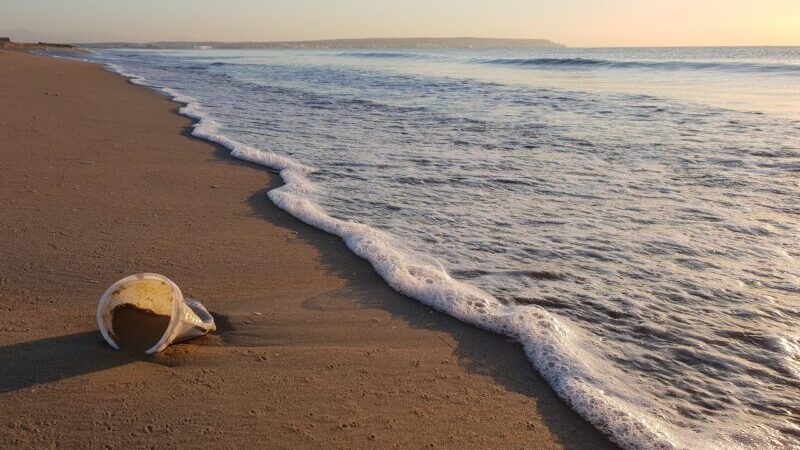
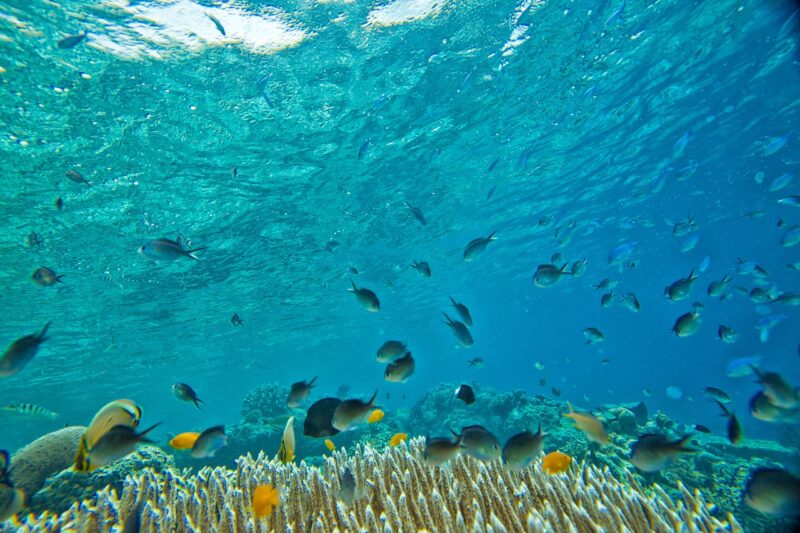
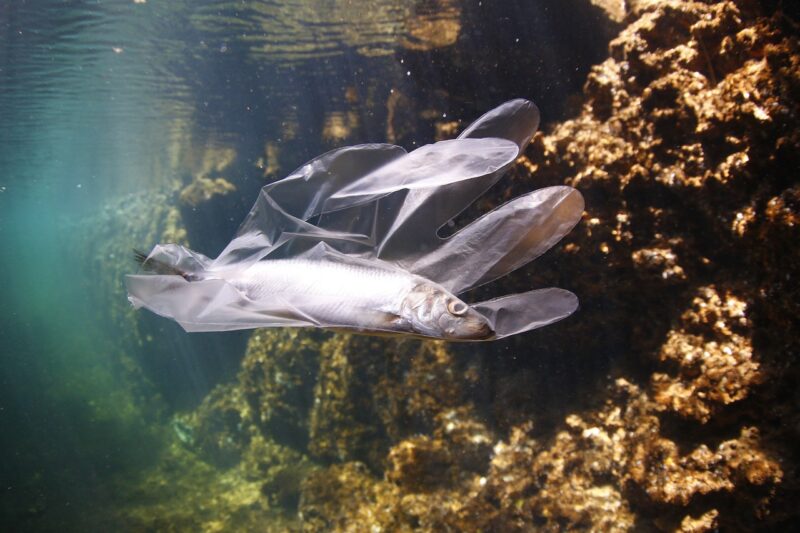
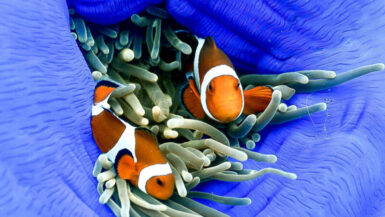
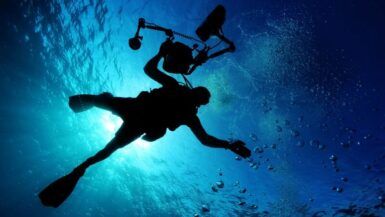
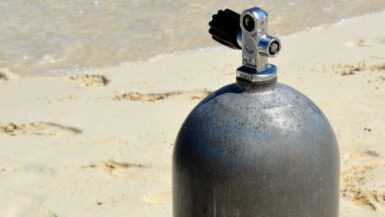
We love your content. Regards from Pissouri Bay Divers from Cyprus!
[…] you are diving as a group then this is a group effort – don’t be “that guy” who is ruining the dive by lagging behind, or pushing people out of the way to get a photo, or shoving go pros in peoples […]